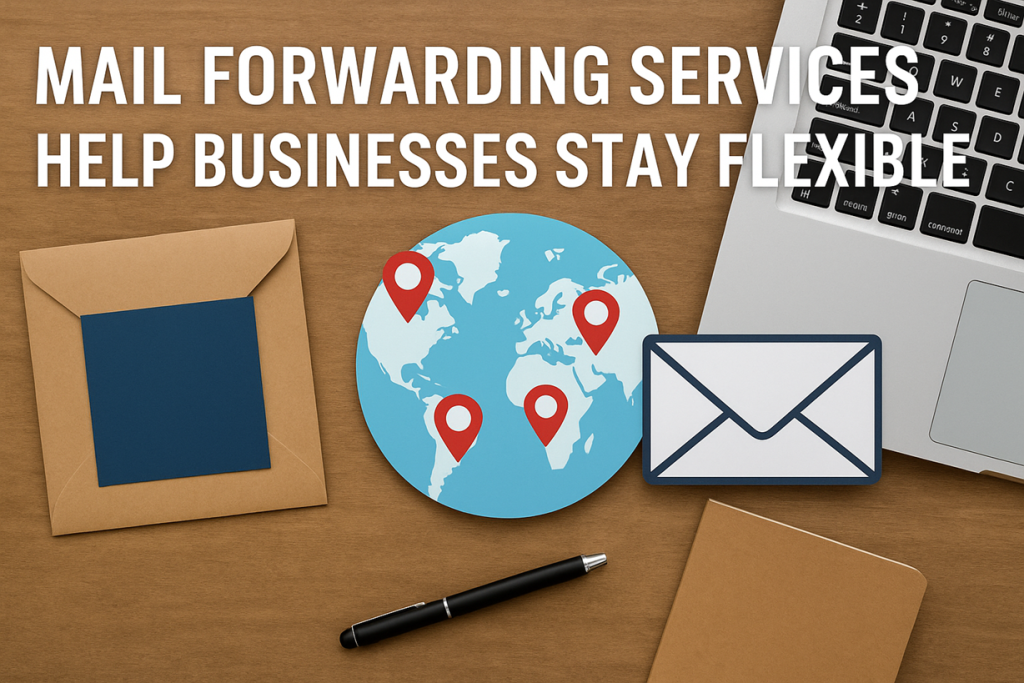Managing posts efficiently can be challenging for many UK businesses, especially those operating remotely or without a physical office. Legal requirements, customer communication, and brand image all demand a stable and professional mailing address. That’s where mail forwarding services come in. These services allow businesses to maintain a consistent mailing address, often in a reputable location, while receiving their post digitally or at a convenient forwarding address. As more companies embrace flexible working and digital-first operations, mail forwarding is essential in modern business management.
Why Business Owners Are Turning to Mail Forwarding Services
The rise in remote working and virtual businesses has changed how companies manage correspondence. A common query among UK-based entrepreneurs is: What is a mail forwarding service, and how does it work? Simply put, a mail forwarding service enables businesses to receive mail at a professional address, which is then forwarded to a chosen location. This gives businesses a credible image while maintaining flexibility in how and where they operate.
With many businesses opting for virtual or hybrid working models, having a physical office isn’t always necessary. However, legal obligations remain, like providing a registered office address or a mailing address for client communication. A mail forwarding service fills this gap efficiently, offering a convenient way to handle business post without being tied to a single location.
What Does a Mail Forwarding Service Include?
At its core, a mail forwarding service provides a fixed mailing address, often in a reputable location, for receiving official documents, parcels, or customer correspondence. Once the mail arrives, it’s either scanned and emailed to you or physically forwarded to an address of your choosing.
Some providers also offer additional features, including:
- Same-day digital scanning of mail.
- Secure shredding of junk or unwanted letters.
- Parcel collection or re-routing options.
- Integration with business registration services.
These options are beautiful for businesses run by digital nomads, sole traders, or small teams working remotely.
Common Search Queries About Mail Forwarding
When businesses search for mail forwarding services, the top questions they tend to ask include:
- Is a mail forwarding service legal in the UK?
- Can I use a mail forwarding address as my registered office?
- How secure is my mail?
- What’s the difference between a PO Box and a mail forwarding address?
The answer to these questions is straightforward: yes, mail forwarding is legal and often used for registered business addresses. Unlike a PO Box, many mail forwarding services provide a complete street address, adding professionalism to your company’s image. When using a trusted provider, your mail is handled with high standards of confidentiality and care.
Who Needs a Mail Forwarding Service?
Mail forwarding is not only for freelancers or startups. Businesses of all sizes use them for different reasons. For example:
- Startups: A London-based address can improve brand credibility even if the team is elsewhere.
- E-commerce brands: Operate from warehouses or home offices, while presenting a customer-facing location in a city.
- International businesses: Use a UK address to establish a local presence.
- Consultants and contractors: Avoid sharing home addresses with clients or on public records.
Even growing SMEs often use mail forwarding as part of their expansion strategy, testing new markets without the cost of leasing physical space.
Mail Forwarding vs. PO Boxes
Although both serve similar purposes, mail forwarding services typically offer more flexibility. A PO Box address cannot be used as a registered office with Companies House, while most mail forwarding providers provide a legitimate address suitable for legal and official documentation.
Also, PO Boxes require you to collect the mail yourself. In contrast, a mail forwarding service offers digital notifications, re-routing, and hands-off management, ideal for busy entrepreneurs or mobile business owners.
How to Choose a Mail Forwarding Provider
Not all providers offer the same level of service. Some businesses simply need a legal address for registration purposes, while others require daily handling of incoming mail. When comparing providers, consider:
- Location of the address: A central business district or a well-known UK city can add legitimacy to your business.
- Delivery method: Is your mail scanned, emailed, or physically posted? Can you choose?
- Response time: How quickly do they forward or notify you of new mail?
- Security protocols: Are sensitive documents handled appropriately?
- Pricing structure: Is it flat-rate, or are there hidden fees for extras like parcel forwarding or mail shredding?
A reliable provider should offer transparent pricing and clearly defined service levels.
A Simple, Secure Solution for Business Mail
Using a mail forwarding service gives businesses peace of mind that important correspondence won’t go unnoticed. It offers a flexible solution for those working across locations, without compromising professionalism or legal compliance. As a bonus, many providers also bundle this with company formation services, allowing new businesses to get up and running quickly.
According to a report by the Office for National Statistics, over 4.3 million people in the UK now work remotely or from home in some capacity, driving up the demand for digital and mail-based services for business operations.
Final Thoughts
A mail forwarding service can become a vital operational tool for modern businesses that value mobility, privacy, and efficiency. Whether you’re just starting to scale your team or expanding into the UK from overseas, having a professional address and secure mail handling solution allows you to focus on what matters, running your business.




![‘Jay Kelly’ Review – Noah Baumbach Makes A Case For The Magic Of Movie Stardom [NYFF 2025] ‘Jay Kelly’ Review – Noah Baumbach Makes A Case For The Magic Of Movie Stardom [NYFF 2025]](https://cdn.geekvibesnation.com/wp-media-folder-geek-vibes-nation/wp-content/uploads/2025/11/Jay-Kelly-JKELLY_20240523_15320_C2_R-300x180.jpg)

